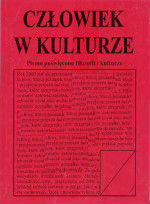
Around the modern conception of science
Wokół nowożytnej koncepcji nauki
Keywords: modernity; science
More...
Keywords: modernity; science
More...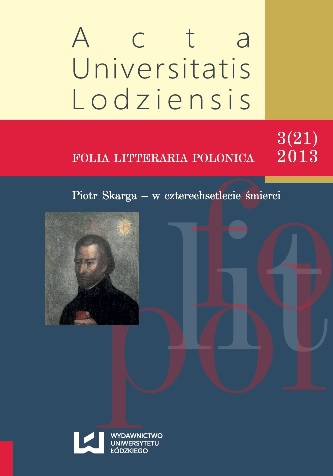
Keywords: Peter Skarga; Iconography; national hero; 1912-1936 anniversaries
The text deals with the fragmentary issue of Piotr Skarga’s iconography which is the artistic legacy of the anniversaries celebrated in 1912 and 2012. The remembrance of this Jesuit’s death one hundred years ago stirred up many emotions. It was visible in, for instance, mass manifestations, books, theatre performances or the creations of fine arts. In the reality of the beginnings of the 20th century, what was important was the impact of the image created by Jan Matejko as well as its ideological, virtually mystical, background. This jubilee, celebrated one hundred years ago, has left numerous traces in the arts, some of which have not been retained to this day. The medal by Witold Bieliński; the bust sculptured by Władysław Mazur and Jan Tombiński; or the exquisite bas-relief by Luna Drexler on the Lvov Latin Cathedral were characteristic of those times. However, the level of those works is contrasted with the quality and number of creations dedicated to Skarga during the last anniversary. Both the postage stamp issued by the Polish Postal Service as well as the monument unveiled at the Warsaw Catholic School are not really original. In 2012, Skarga was mentioned most frequently on the Internet, in the forms of memes, which were often obscene and inappropriate.
More...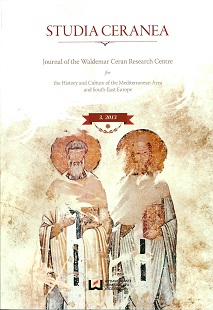
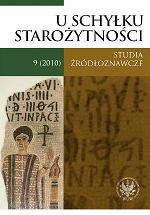
Keywords: Edykt Dioklecjana o cenach; polskie wydanie
The author proposes corrections to the recent Polish translation of Diocletian’s Edictum de pretiis, concerning the terms duracina and moneaea.
More...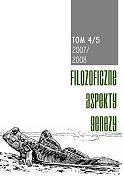
Keywords: creationism; evolution; naturalism; supernaturalism
Review of: Piotr Jaroszyński (ed.), Ewolucjonizm czy kreacjonizm, „Przyszłość Cywilizacji Zachodu”, Fundacja „Lubelska Szkoła Filozofii Chrześcijańskiej”, Lublin 2008, pp. 374.
More...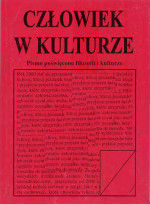
Keywords: culture; civilization
More...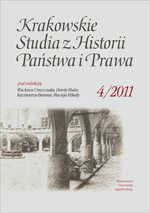
Review: Piotr Górski, Profesjonalizacja administracji państwowej w Polsce 1918–1939. Uwarunkowania społeczne i kulturowe
More...
Keywords: solecyzm; palindrom; lingwistyka; komunikacja
The aim of the article is to search for fairly peculiar and sophisticated forms of solecisms bordering between literature and absurdity, where the Beginning is the End is the Beginning – in palindromic constructions. Palindromes as expressions of the linguistic image of the world and the virtually unlimited possibilities to create them lead to interesting descriptions and verification of conventionalised rules of the world perception and categorisation. The humorous aspect, rooted in both palindromes and solecisms, offers the double chance to escape from the orderly world with all its generally accepted regulations and the rigour of logical thinking and to set off on the journey into the land of creative and original language games, which awaken the dormant layers of imagination, force to undertake an intellectual effort, and lead to a different way of perceiving and organising the surrounding world. The most significant types of palindromes, the nature of solecisms and the most frequent types of solecistic deformations will be presented and discussed in the article.
More...
Z Maciejem Zembatym rozmawia Przemysław Bogusz
More...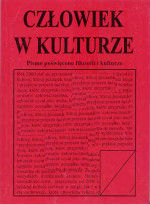
Keywords: Latin civilization; Western civilization; emanatism
More...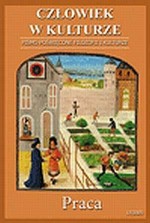
Keywords: sophia; philosophy; antiquity; Europe
By referring to original Greek texts the Author seeks to demonstrate that primarily (from Homerus to Plato as well as to Aristotle in part) the Greek SOPHIA did not indicate wisdom at all, but the mastery of practical character. Similarly, at its beginning the term PHILOSOPHIA was not a love of disinterestedly cognized truth in a scientific way, but a passion of cognition following the interest (Herodotus, Thucydides). Definitely the establishment of philosophy as science, determined by its own object, method, and aim, was done by Aristotle. Even today philosophy, comprehended in a scientific way, has no its equivalent in Oriental cultures, so to speak of a Chinese or Japanese phi-losophy is a mere misuse.
More...
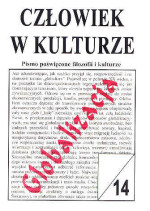
Keywords: shame; Thomas Aquinas; philosophy
The experience of shame stimulates man to discover seeds of knowledge about good, and find virtue in himself. It enables human conscience to see truth clearer. In the experience of shame, the author says, man can discover, more than in any other occurrence, a need of and a trend to the experience of the final goal of human existence.
More...
Keywords: anthropology; globalization; Western civilization
With analyzing the process of globalization, the author tries to reconstruct the anthropology of globalization as a specific order of social life. Having described some alarming tendencies (such as the deterioration of economical situation, the “a priori” defining of welfare and economic standards, the endangered sovereignty of states and nations, the organization of social life with no regard for moral good), the author points at their anthropological background which justifies some necessary correction of their vision of man. Globalization can not be independent from anthropology which follows the objective truth about human good.
More...
Keywords: imperialism; globalization; Western civilization
The author traces historical models of political expansion in order to analyze these elements which underlie the contemporary processes of globalization (technological and political globalism). He concludes that globalism is a kind of super-totalitarianism in the mask of democracy, deprived of its moral grounds, which gives to individuals an illusion of participation, instead of the efficient chance of exercising their influence on governments.
More...
Keywords: Karol Jaroszyński; the Jaroszyński family; Bolshevism; the Romanov family; early 20th century bankers
The article is devoted to the life and activities of Karol Jaroszyński, one of the richest and most influential people in czarist Russia at the time of its twilight. K. Jaroszyński was descended from a Polish family settled in the Borderlands (in the Kiev region). Educated within the sphere of Western and Catholic culture, he owed his financial prosperity to successful investments in the banking system of the Romanov family, and also to wide contacts and connections. K. Jaroszyński personally knew czar Nicholas II’s family, and also influential financiers and entrepreneurs who were active in Russia before the outbreak of the I World War (inter alios Emanuel Nobel, Boris Abramovich Kamienka, Vladislav Zhukowsky). He was an adherent of a theory that as a result of the domination of German capital and its “tacit” collaboration with the Bolsheviks in 1917-1918, the consolidation and eventual victory of the “red” dictatorship occurred. K. Jaroszyński took part in a plot to save the czar’s family from the hands of Bolshevist murderers (the plot was unsuccessful). He also explored, together with the British intelligence, the chances of deposition of communist dictatorship on the basis of available economic and organisational resources. In 1919 he left Russia and travelled across Western Europe, where his great determination was met with even greater lack of understanding as he attempted to form a front against the communist dictatorship in Russia which he considered, similarly to W. Churchill, as a great danger to mankind. Eventually he settled in Poland where he became famous as the founder of the Catholic University of Lublin, a Polish institution of education modelled after the Catholic University of Leuven. K. Jaroszyński was unsuccessful in his business matters conducted in his fatherland; he did not start a family. He died in poverty and solitude in Warsaw on 8 September 1929. The article features two never-before-published memoirs of people who were friends with K. Jaroszyński. These are the accounts of Kazimierz and Karol Górski, father and son. Karol Górski went on to become a professor of the Nicolaus Copernicus University in Toruń. The writing of the article was possible thanks to the kindness and assistance of K. Jaroszyński’s family and relatives: Józef Jaroszyński, Paweł Dembinski, Teresa Bisping née Starowieyska and Wojciech Starowieyski.
More...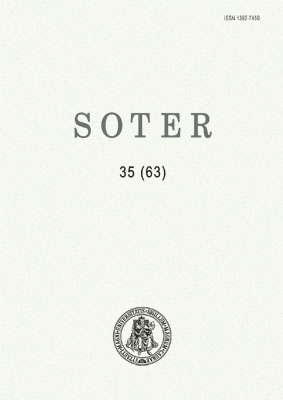
Keywords: sekuliarizmas; naujoji evangelizacija; homilija; homilijos turinys; Evangelijos žinios skelbimo būdai; secularism; the new evangelization; homily; the content of homily; ways of preaching the Gospel
Straipsnio objektas – Evangelijos skelbimas, t. y. žodinis Dievo žodžio perteikimas, kuriantis Kristaus ir klausytojų ryšį, vedantis į išsilaisvinimą per Eucharistiją. Pamokslavimas yra pagrindinė evangelizacijos kryptis. „Būtų klaida nelaikyti homilijos svarbia ir itin tinkama evangelizacijos priemone“ (EN 43). Tai analizuojama straipsnyje skelbiamo turinio, gebėjimų, asmenybės, dvasingumo ir pamokslautojo bendravimo įgūdžių kontekste. Pamokslavimo praktika laikui bėgant keičiasi, taip pat ir metodai bei retorika, naudojama Dievo žodžiui skelbti. The subject matter includes: preaching the Gospel, i.e. oral proclamation of the Word of God creating a contact between Christ and listeners and an experience of the liberation in the Eucharist. Preaching is the mainstream of new evangelization. “Homily is a very important and potent tool of evangelization” (EN 43). The article analyses the content and competences, personality, spirituality and communication skills of a preacher. Homiletic practices are changing in the course of time and so do the methods and rhetoric used to pronounce the Word of God.
More...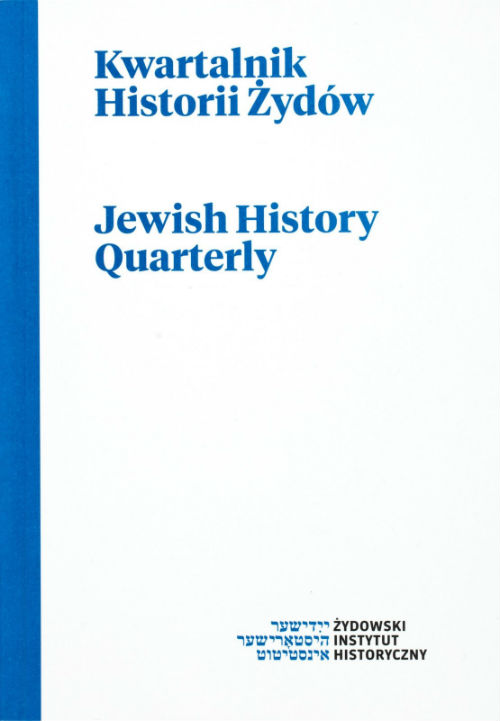
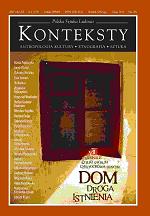
Keywords: anthropology; home
The purpose of this text is to depict the sort of men- tal hospital that emerges from widely understood me- dical literature – reports, scientific articles, textbooks intended for nurses and psychiatrists as well as specia- l-occasion material. The application of an anthropo- logical interpretation – by referring to the symbolic of the home, mental illnesses, the problem of liminality and otherness, as well as rules organising scientific co- gnition and treatment, including the mechanism of control, discipline and punishment – makes it possible to treat the 'insane asylum’' as aparadoxical and am- bivalent space. The principle of ambivalence may be observed by considering the terrain of the hospital in different interpretations, as an example of asituation of an encounter of the intellect and mindlessness, an asylum and aprison, arefuge and aplace of exile. It reflects not only the culturally determined ambiguity of madness, but also the specificity and 'inner rent' of the psychiatric discourse, in which the biological and humanistic perspectiveconstantly confront each other; this, in turn, can affect the way of conceptuali- sing mental disturbances, the perception of the sick and subsequent therapy.
More...
Keywords: conformity; honesty; moral principles; objectivism; relativism
Our contemporary life is said to be in conformity with what we do. People tend to be honest and trustworthy unlike those in the past - in the Victorian times, for example, when there were elements of hypocrisy and conventional behaviour among citizens. Many people nowadays live their lives according to their own subjective beliefs; and they speak openly about their both good and bad deeds – even if some of them were kept secret to the public. And the public is equally open to tolerate or even accept them. An analysis of many cases in which people follow their own moral beliefs shows that this category of people are not always honest – only then, when their system of moral values is in accord with the objective system of moral values. Individual moral beliefs can be a result of false or relative moral theories, or even constructed to fit one’s moral attitude. Behaviour in which one respects the established principles, though may seem genuine, does not need to be considered honest. Following this kind of thinking, a man does not have any motivation or need to control himself – human-beings can dispense with self-development. The Victorian hypocrite had at least a due respect for moral values and knew that he had done wrong. His honesty followed what was good in his life but his deeds were all in all doomed to failure. Failure on the way of applying the right moral principles in life is not dishonesty. Every attempt to follow them inspires humans to undertake some spiritual efforts and gives opportunity to one’s own personal development.
More...